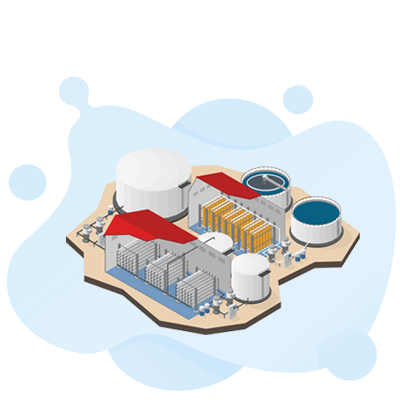
Getting a wastewater operator certification is key for those wanting to work in wastewater treatment. This guide will give you the info and strategies to pass the Wastewater Operator Certification Test. It’s for both newbies and seasoned pros looking to grow in their careers. You’ll get the knowledge and tools to ace the exam with confidence.
To become a wastewater operator, you need to meet certain educational and experience standards. These are key for getting water pollution control certification, environmental compliance certification, industrial wastewater certification, or municipal wastewater certification. Knowing these requirements is vital for passing the Wastewater Operator Certification Test.
First, you must have a high school diploma or its equivalent. Then, you need at least one to two years of experience in a wastewater treatment plant. This experience varies based on the certification you aim for.
To get ready for the test, you should use different study tools. These include:
The Wastewater Operator Certification Test has various levels. Each level has its own set of requirements. It’s important to pick the right level for your career goals and current skills. This ensures you’re qualified and ready for the exam.
By meeting these essential prerequisites, you can start your journey towards water pollution control certification, environmental compliance certification, industrial wastewater certification, or municipal wastewater certification.
To pass the Wastewater Operator Certification Test, you need to know the main topics. These include the activated sludge process certification, biological nutrient removal certification, and the basics of wastewater treatment process and water quality testing.
The activated sludge process is key in wastewater treatment. You must understand its parts, how it works, and its role in removing organic matter. This includes knowing about aeration, sludge settling, and recycling.
Biological nutrient removal is also vital. It deals with controlling nitrogen and phosphorus in wastewater. You need to know about nitrification, denitrification, and enhanced biological phosphorus removal to manage nutrients well.
The exam will also test your knowledge of wastewater treatment operations. This includes understanding flow measurement, disinfection, and sludge handling. Knowing how to do water quality testing, like BOD and pH analysis, is also important.
By really getting these topics, you’ll do great on the Wastewater Operator Certification Test. You’ll show you know a lot about wastewater treatment.
As you work towards getting your Wastewater Operator Certification, remember your big role. You help keep our sewage systems safe and follow important environmental rules. This certification boosts your career and shows you care about keeping our communities healthy.
By learning about the test, you’re ready to do well. This knowledge helps you pass the exam and opens up new career paths. Your success helps keep our water treatment systems working well for everyone.
Be ready for the challenge and believe in your preparation. The skills you gain will help you grow in your career and make a difference in your community. Keep striving for excellence in the wastewater treatment field.
The Wastewater Operator Certification Test checks if you know your stuff in the wastewater field. It’s needed to get a job or move up in wastewater treatment plants.
The test covers many topics. You’ll learn about the activated sludge process, how to test water quality, and more. It also includes environmental rules. You need to know these well.
To take the test, you need a high school diploma or similar. You also need some work experience in wastewater treatment. The exact amount depends on the level of certification you want.
Good study materials include textbooks, manuals, practice exams, and online tools. They help you learn the important stuff and get used to the test’s style.
To pass, study hard and really get the key concepts. Practice solving problems too. Knowing the test’s layout and time limits helps you stay focused.
Getting certified boosts your career in wastewater treatment. It shows you’re skilled, dedicated, and serious about keeping the environment and public safe. It’s often needed for jobs and promotions.